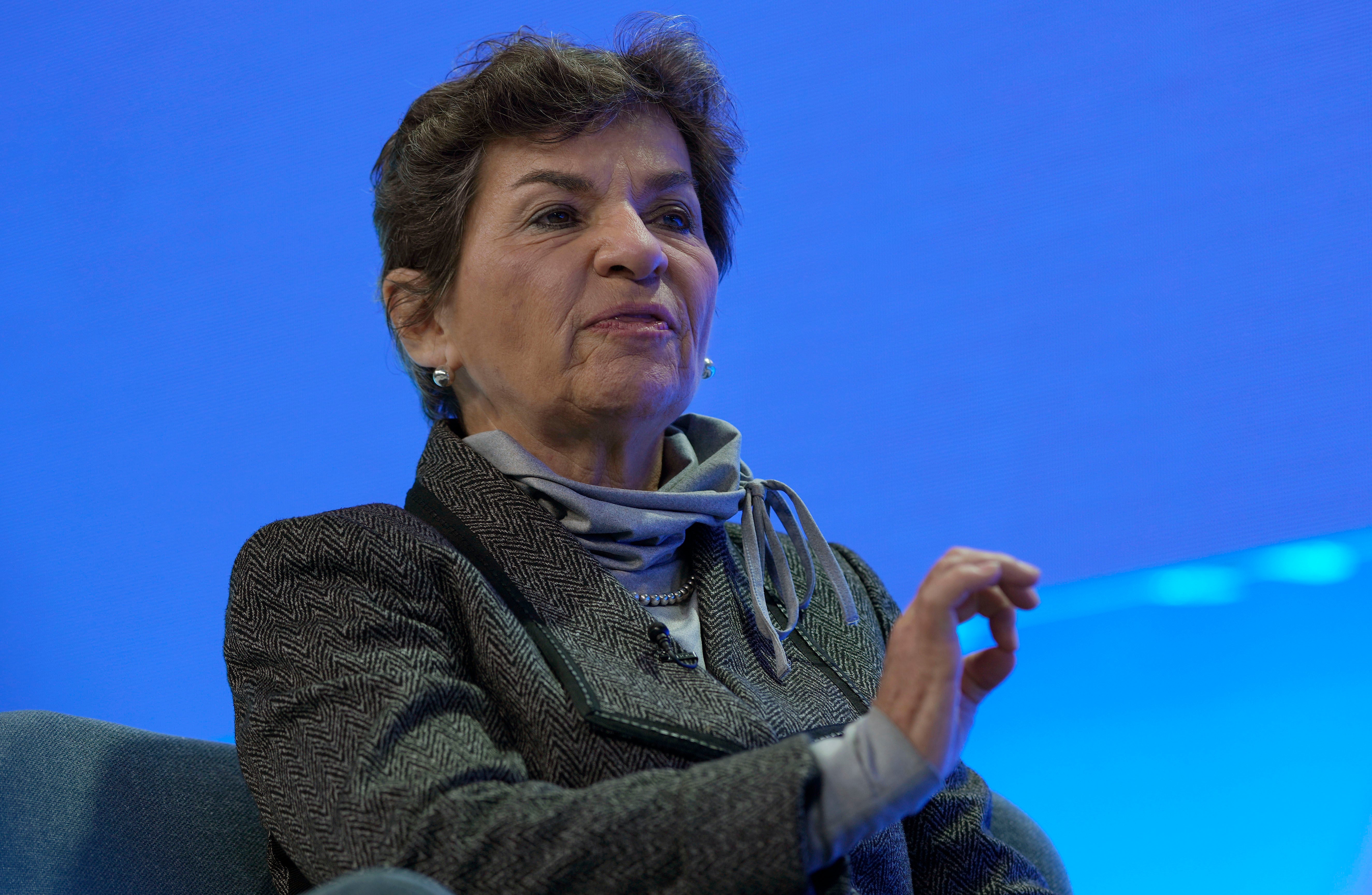Ex-UN climate chief doesn't see Paris-type moment in Glasgow
The woman who engineered the Paris agreement six years ago doesn’t expect the United Nations climate conference that just started in Glasgow to end with the same kind of big landmark

Your support helps us to tell the story
From reproductive rights to climate change to Big Tech, The Independent is on the ground when the story is developing. Whether it's investigating the financials of Elon Musk's pro-Trump PAC or producing our latest documentary, 'The A Word', which shines a light on the American women fighting for reproductive rights, we know how important it is to parse out the facts from the messaging.
At such a critical moment in US history, we need reporters on the ground. Your donation allows us to keep sending journalists to speak to both sides of the story.
The Independent is trusted by Americans across the entire political spectrum. And unlike many other quality news outlets, we choose not to lock Americans out of our reporting and analysis with paywalls. We believe quality journalism should be available to everyone, paid for by those who can afford it.
Your support makes all the difference.Christiana Figueres knows how to hammer out a climate deal, and she doesn’t expect the United Nations conference that just started in Glasgow to end with the kind of big moment she engineered in Paris six years ago. But she remains optimistic, saying failure “is not going to happen here.”
Figueres, the former executive secretary of the U.N.'s climate change program, was a key architect behind the historic 2015 Paris climate agreement. She says the negotiations leading to the two-week conference in Scotland have not progressed enough to reach the U.N.’s goals of cutting global greenhouse emissions in half from current levels and securing $100 billion a year in climate aid from rich nations to poor ones.
Those goals probably won’t be hit for another two years, but that’s OK, Figueres told The Associated Press.
“From a science perspective, we’re still in time, even if we do it in two years,” Figueres said in a late Sunday sit-down interview at the negotiations site. “From a political perspective, it is a disappointment for many, and I understand. So I do not celebrate it, but I think that we have a responsibility to be honest and to really understand the complexity of what we’re doing here.”
Asked if that means the negotiations will end in failure, like the U.N.'s 2009 climate talks in Copenhagen, she said: “It’s not going to happen here. No, no, no. There's actually been too much progress and too much has advanced for something like that.”
Figueres called the climate statements that came out of the two-day Group of 20 summit in Rome that ended Sunday “lackluster.” Still she said she looks at “where we are today, which is sizably much better than what we were in Paris six years ago.”
Knowing what details worked to make the historic Paris 2015 agreement and the individuals still working on the issue makes her optimistic, Figueres said. In fact, she now runs a nonprofit organization called Global Optimism.
After the Copenhagen failure, Figueres’ office spent two years dissecting what went wrong and wrote a 300-page autopsy. One of the big changes was having the conference start with more than 100 heads of state attending for two days instead of leaders coming in at the end of the two-week annual meeting.
That works better because the leaders can set the tone and have more negotiating space to “chart the course” instead of getting bogged down in details looming at the end, said Figueres, who in Paris also kept the energy of U.N. staff members up with evening dance sessions after most people left.
“For heads of state, it is actually a much better use of their strategic thinking,” Figueres said.
Before leaving Rome for Glasgow on Sunday, U.S. President Joe Biden called it “disappointing" that Russia and China "basically didn’t show up” ahead of the climate conference with commitments to reduce greenhouse gas emissions. Two hours earlier, Figueres painted a far brighter picture of China’s efforts and the strained U.S.-China relationship.
Figueres said it was unfair to say China was not showing up for the Glasgow conference because President Xi Jiping was not coming in person. She said China’s long-time climate negotiator, who worked on four bilateral agreements that led to the 2015 Paris accord with then U.S. Secretary of State Jon Kerry, is a major force.
And she said China and the United States had high-level intense talks during the last two days “and I am joyously expectant to hear results from that.”
___
Follow AP's climate coverage at https://apnews.com/hub/climate
___
Follow Seth Borenstein on Twitter at @borenbears
___
The Associated Press Health and Science Department receives support from the Howard Hughes Medical Institute’s Department of Science Education. The AP is solely responsible for all content.